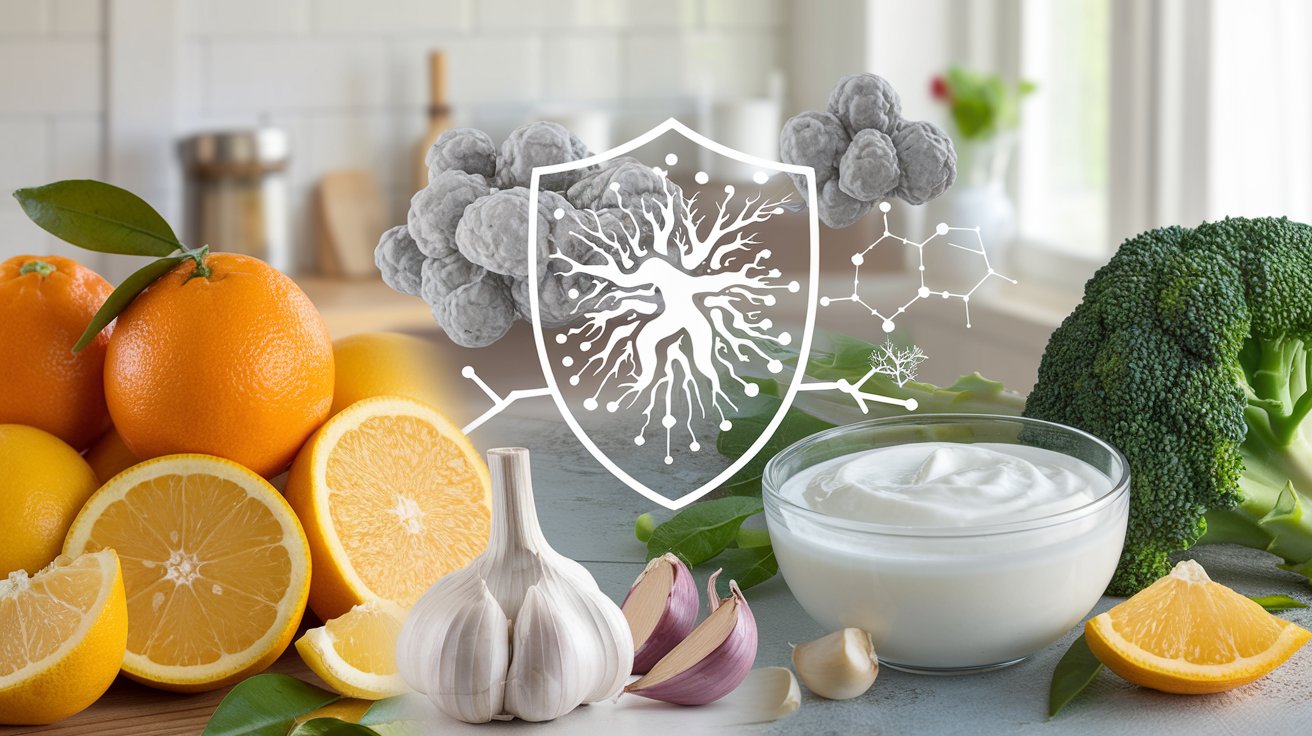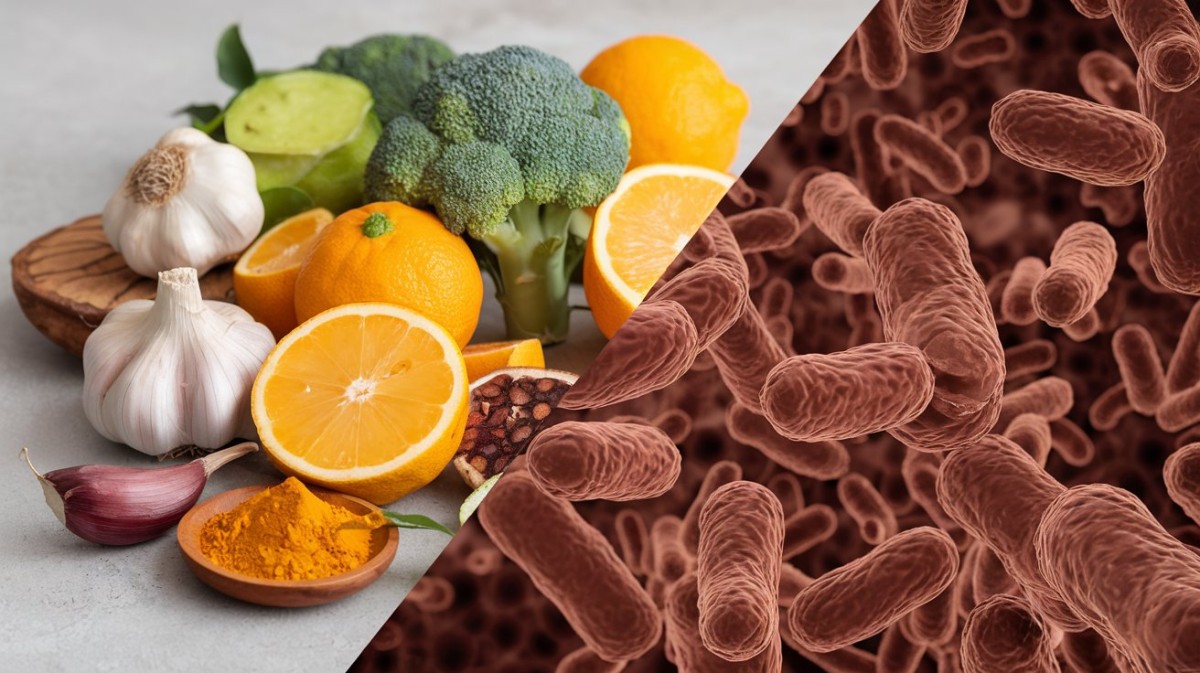Mycoplasma infections are caused by a unique group of bacteria that lack cell walls, making them resistant to many common antibiotics. These infections can affect various body systems, including the respiratory, urinary, and genital tracts. While conventional treatments often involve antibiotics, there is growing interest in natural remedies and dietary approaches to support the body’s immune response and combat mycoplasma infections.
This blog explores effective natural remedies and dietary strategies that may help manage and prevent mycoplasma infections.
Understanding Mycoplasma Infections
Mycoplasma bacteria are among the smallest and least complex of bacteria, with more than 200 recognized species. Of these, Mycoplasma pneumoniae causes respiratory tract infections which is often referred to as ‘walking pneumonia.’ Mycoplasma genitalium and Mycoplasma hominis cause urogenital infections. Symptoms vary and can be moderate respiratory infection to severe involving the lungs or reproductive system.
Since mycoplasmas contain no cell wall it cannot be targeted by antibiotics such as penicillin. However, macrolide antibiotics such as azithromycin and tetracyclines including doxycycline are preferred. But such treatments come with side effects and as a result, many patients turn to natural remedies or other forms of therapy.
Dietary Approaches to Combat Mycoplasma Infections
1. Boosting Immune Function

The human body’s natural defence mechanism should be strong enough to counter the effects of various bacteria such as mycoplasma. Certain dietary components can enhance immune function:
- Citrus Fruits: As sources of vitamin C oranges, lemons and grapefruits can improve production of white blood cells that play an important role in warding off diseases.
- Garlic: Garlic is recognized for its antibacterial properties due to the allicin compound which has been proven to improve immunity and the fight against bacteria.
- Broccoli: Full of vitamin C, Vitamin-A, vitamin E and antioxidants it helps overall body health and enhances the immune system.
- Yogurt: Yogurt contains probiotics that are effective in restoring the balance of the bacteria in the digestive system, which is responsible for immunity. A diversified and balanced gut flora can help boost the body’s immune system functions.
2. Anti-Inflammatory Foods

Persistent inflammation can compromise the efficiency of the immune system hence exposing the body to more diseases. Incorporating anti-inflammatory foods into your diet can help reduce inflammation:
- Turmeric: Curcumin, the active ingredient present in turmeric, is well known for its anti-inflammatory effects. It can be incorporated in meals as a spice or taken in the form of tea for health improvement.
- Ginger: With its ability to act as an anti-inflammatory agent, ginger can be eaten fresh, in teas or mixed into recipes.
- Berries: Blueberries, strawberries, and many other berries have properties that can reduce oxidative stress and inflammation in the human body.
3. Hydration

Hydration in particular is very important in overall wellness and the functioning of the immune system. Water assists in the elimination of toxins from the body and lubricates the mucous membranes which plays an important role in respiratory health during an infection.
Warm Fluids: Sipping warm water with honey and a pinch of cinnamon or any herbal teas like ginger or peppermint can be good for a sore throat and respiratory system as it can assist in breaking down accumulated mucous.
4. Herbs with Antimicrobial Properties

Certain herbs have been shown to possess antimicrobial properties that may help combat mycoplasma:
- Echinacea: Commonly taken as a prophylactic measure against colds and flu, echinacea may boost the immune system and its ability to fight against bacterial infections.
- Oregano Oil: Oregano oil is a potent antioxidant supplement that can be ingested or used as an ingredient in a meal to boost the body’s antibacterial powers.
- Thyme: Thyme has thymol that helps in killing bacteria and other microorganisms In the human body. It can be eaten with food or prepared like tea.
5. Lifestyle Factors

In addition to dietary changes, certain lifestyle factors play a significant role in supporting immune health:
- Sleep: Sleep is a crucial component of the immune system. During sleep, the body produces cytokines that act as antibodies for helping fight off pathogens. Ensure that you get between seven and nine hours of good quality sleep every night.
- Exercise: Moderate exercises done regurlary have been proven to enhance immunity through improved blood circulation and reduced stress. Try to get 30 minutes or more of exercise at least five to seven days a week.
- Stress Management: Stress if prolonged will lower the immune system. Activities like meditation, yoga, or deep breathing exercises are some of the effective ways of controlling stress.
Conclusion
Since mycoplasma infections are delicate to manage due to the nature of the pathogens as well as their ability to be resistant to some antibiotics, the addition of natural and dietary approaches can improve the health of the individuals and improve their ability to combat the infections. Through healthy eating that incorporates nutrient-dense foods that enhance immunity, taking enough water, reducing stress, and practicing a healthy lifestyle by exercising and having adequate sleep, there is a possibility of preventing virulent mycoplasma bacteria from taking root.
As always, it is crucial to seek medical advice from a healthcare provider before making drastic changes to your diet or treatment regimen, especially if you who have mycoplasma infection or any related disease. As part of holistic patient care, these remedies can be very effective to supplement traditional medicine, but they should never act as a substitute for doctor’s orders or medications when recommended.
